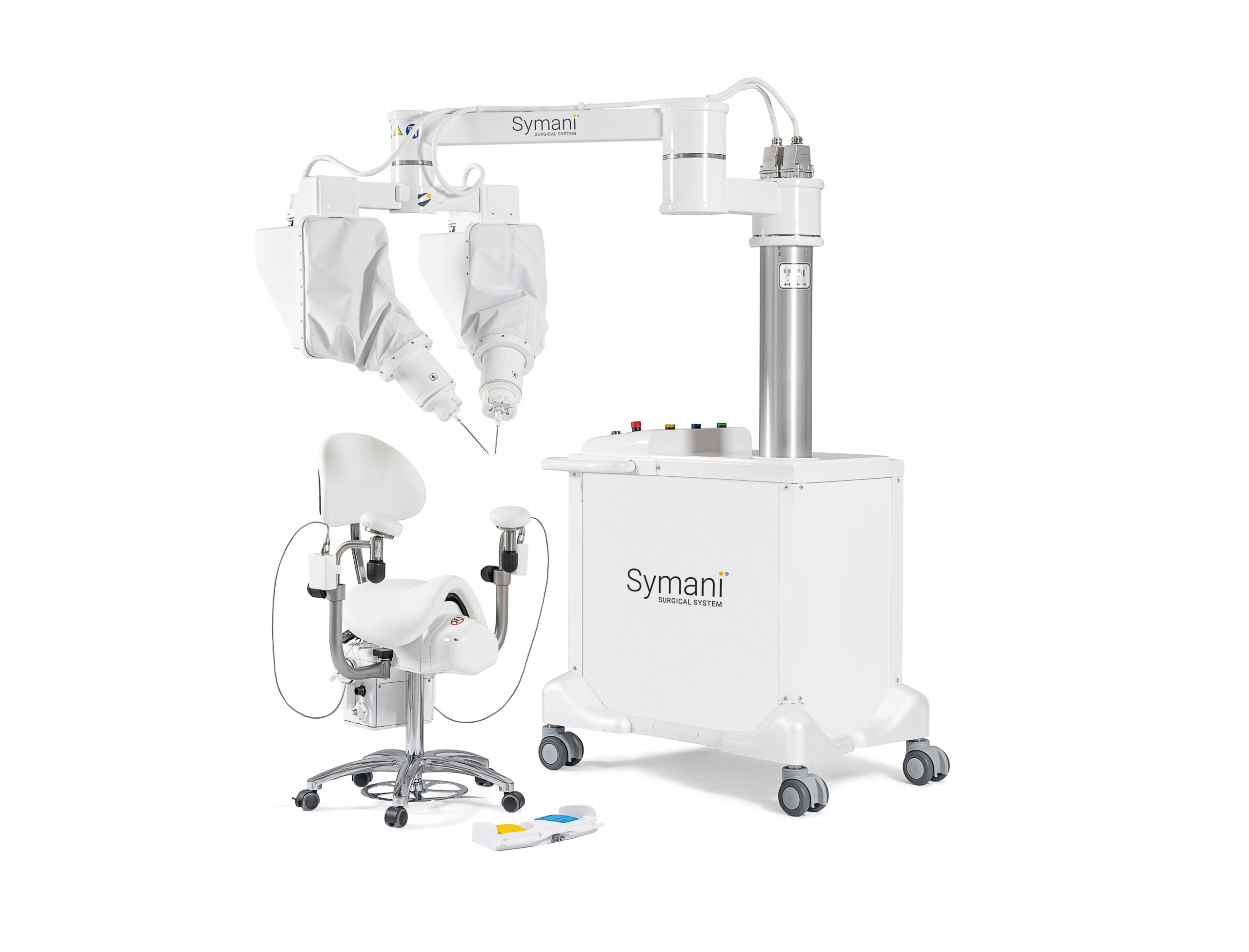Robotic surgery has been rapidly adopted by hospitals in the United States and Europe for use in treating a variety of conditions. The idea of using robots for surgery has been around for over 50 years, with its first real use beginning in the late 1980s with Robodoc, the orthopedic image-guided system for prosthetic hip replacement.
Today, robotic procedures are quickly becoming the new standard of care. Using robotic surgery, surgeons have enhanced precision, flexibility, control, and visibility that allow them to perform minimally invasive procedures that offer better outcomes to patients.
Even more complex is robotic microsurgery, which involves the manipulation or suturing of arteries, veins, ducts or nerves. These complex procedures require magnification, specialized instruments, and a surgeon’s fine motor skills. Medical Microinstruments (MMI), a medical device company based out of Italy, is leading the robotic microsurgery field with the newly released Symani Surgical System.
The Symani Surgical System enables surgeons to perform some of the most complex surgeries with greater ease and fewer complications—preclinical data shows Symani reduces thrombosis, a main complication of microsurgery, by 50%.
MMI hopes that Symani will become the standard for microsurgery, but they aren’t leaving it up to chance. They recognized that as good as the surgical system is, they needed even better service to ensure maximum system uptime on every machine. To do so, MMI sought out a sustainable and scalable field service management solution.
“We had big goals when looking for a solution. We wanted a platform that would allow us to minimize response time by optimizing the displacement schedules of our engineers, ensure traceability of complaints and issues to meet quality compliance requirements, and have an organized way of gathering customer feedback so that we could make continuous improvements to our system,” said Giancarlo Testaverde, Executive VP of Operations at Medical Microinstruments.
MMI quickly identified ServiceMax as one of the leading providers of field service management software, especially when it comes to the medical device field.
“We wanted a top-of-the-line software vendor who would become a long-term partner and help us design the best processes and best practices. ServiceMax has been a proven leader for the biomedical space for many years. We saw how the biggest players in the medical device industry choose ServiceMax,” said Testaverde.
The partnership between ServiceMax and Salesforce was another important factor in MMI’s decision. “We were looking for a complete turn-key solution to support asset and resource management, contract and warranty administration, and service revenue maximization,” said Testaverde. “The combined strengths from both companies bring added value that enables field service engineers to deliver an outstanding and proactive customer experience while ensuring maximum asset performance.”
As MMI looks to the future, they see service and emerging technology like AI and IoT as the path to drive new recurring revenue and meet advancing customer expectations.
“Our next move would be to remotely retrieve data in real time and drive service excellence through data analytics,” said Testaverde. “Through this approach, we can improve the engineering and R&D of our products and transform our service offering to include AI troubleshooting, resource planning, and more. Additionally, we can use AI to help to close generational gaps and facilitate knowledge sharing between senior field service engineers and junior technical employees.”
More Customer Stories:


Share this: